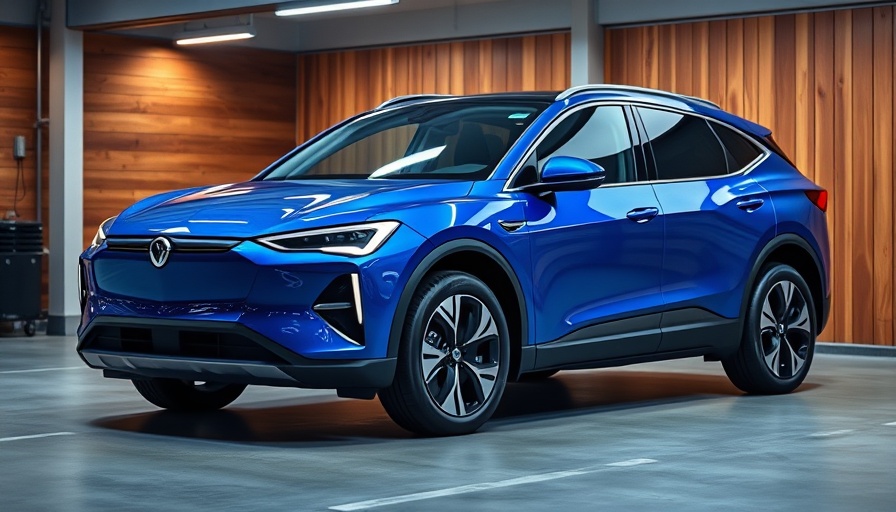
The Impact of Tax Credits on Electric Vehicle Production
As the $7,500 federal tax credit for electric vehicles (EVs) nears its expiration, General Motors (GM) has announced significant cuts to its EV production. This decision continues to reverberate through the automotive industry, raising urgent questions about the sustainability and scalability of electric vehicle manufacturing without substantial consumer incentives.
Why Producers Are Feeling the Pressure
The expiration of tax credits is not a new phenomenon in the EV market, yet its timing poses a unique challenge for manufacturers like GM. With consumers heavily relying on these incentives to make electric cars financially accessible, the dwindling of such benefits will likely result in a noticeable drop in sales and, consequently, production. Recent data from the Electric Vehicle Association indicates that 8 out of 10 buyers consider these financial incentives vital when choosing a new vehicle.
Stock Market Reaction: What It Signals
News of GM's cutbacks sent ripples through the stock market, further highlighting investor sentiments regarding the future of EVs. Analysts speculate that, without strong government support, companies might need to pivot back to gas-powered vehicles, contradicting their long-term commitments to sustainability. Some reports even suggest potential layoffs in manufacturing jobs, aggravating the industry's already delicate economic balance.
Consumer Behavior Post-Credit
As consumers prepare for the expiration of the EV tax credit, many are left weighing their options. Should they invest in an electric vehicle now while incentives still exist, or wait for potential advancements in technology? New consumer surveys show an increasing preference for hybrid models, which promise improved fuel efficiency without completely committing to electric. This shift underlines a growing skepticism about the viability of fully electric models in the current market.
Looking Ahead: Future of Electric Vehicles
While GM scales back, other competitors are keen to fill the gaps created by such strategic moves. Brands like Ford and Tesla are poised to continue releasing new models and enhancing their charging infrastructures, attracting consumers who may still view EVs as a desirable option despite expiring incentives. Experts predict that innovations in battery technology and manufacturing efficiency could reinvigorate interest in electric travel in the near future.
Conclusions for Consumers and Investors
The landscape of electric vehicles is undoubtedly shifting. With the impending expiration of tax rebates and changes in production strategies, both consumers and investors must remain vigilant and informed. As GM and others navigate this transition, understanding these market dynamics will become essential for making educated decisions about future vehicle purchases or investments. For now, keeping an eye on the evolving policy environment surrounding EVs could provide additional insights into where the market may head next.
 Add Row
Add Row  Add
Add 




Write A Comment